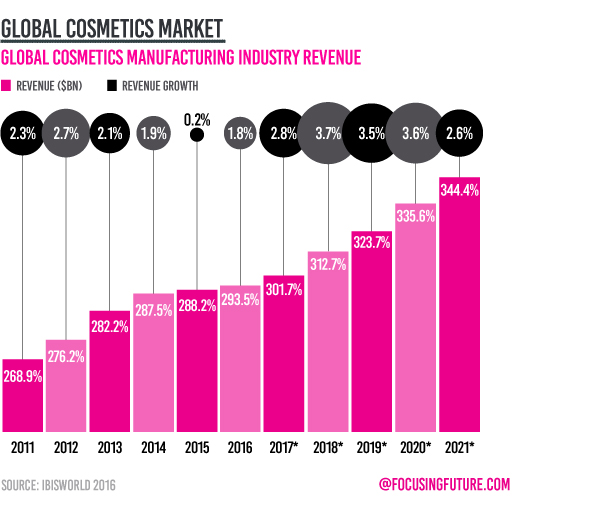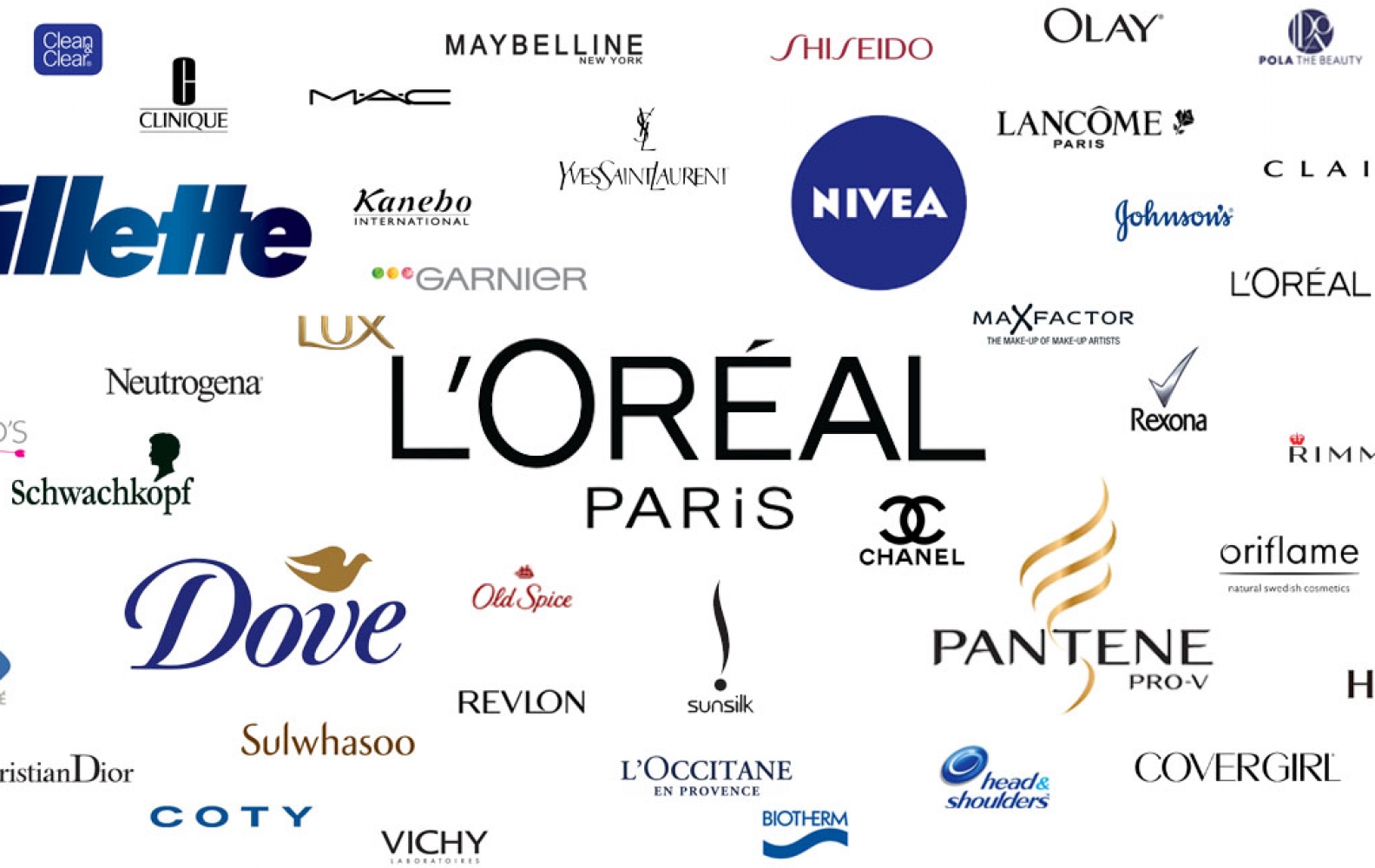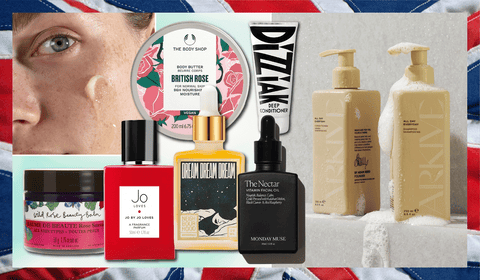The Evolution of Makeup Brands in the UK: A Landscape of Innovation and Diversity
Related Articles: The Evolution of Makeup Brands in the UK: A Landscape of Innovation and Diversity
Introduction
With great pleasure, we will explore the intriguing topic related to The Evolution of Makeup Brands in the UK: A Landscape of Innovation and Diversity. Let’s weave interesting information and offer fresh perspectives to the readers.
Table of Content
The Evolution of Makeup Brands in the UK: A Landscape of Innovation and Diversity
The UK makeup industry has undergone a dramatic transformation over the years, evolving from a limited selection of brands to a vibrant landscape teeming with innovation, diversity, and inclusivity. This evolution is driven by a confluence of factors: a growing awareness of the power of makeup as a form of self-expression, a shift towards sustainable practices, and an increasing demand for products that cater to a wider range of skin tones, textures, and preferences.
The Pioneers: A Legacy of Excellence
The early 20th century saw the emergence of iconic makeup brands like Max Factor, a pioneer in theatrical makeup that later transitioned to cater to the everyday consumer. Estee Lauder, established in 1946, revolutionized the beauty industry with its focus on skincare and a sophisticated approach to makeup application. These brands, along with others like Elizabeth Arden and Helena Rubinstein, set the stage for the modern makeup landscape, establishing standards of quality and innovation that continue to resonate today.
The Rise of Independents and Niche Brands:
The late 20th and early 21st centuries witnessed a surge in independent and niche makeup brands, often driven by a desire to address specific needs and preferences. Brands like Illamasqua, known for its bold and theatrical makeup, and NARS Cosmetics, renowned for its luxurious textures and vibrant colors, offered alternatives to the established giants. This period also saw the emergence of brands specializing in specific areas, such as MAC Cosmetics with its focus on professional makeup artistry and Benefit Cosmetics with its playful and whimsical approach.
The Digital Revolution and the Power of Social Media:
The advent of social media platforms like Instagram and YouTube has fundamentally changed the way makeup is consumed and disseminated. Online influencers and beauty bloggers have become powerful voices in the industry, shaping trends and influencing consumer choices. This digital revolution has also empowered smaller brands to reach wider audiences, fostering a more diverse and inclusive makeup landscape.
The Importance of Inclusivity and Sustainability:
The makeup industry is increasingly recognizing the need to cater to a wider range of skin tones, textures, and preferences. Brands are expanding their shade ranges, developing formulas that are inclusive of all skin types, and focusing on ingredients that are both effective and ethically sourced. Sustainability is another crucial aspect, with brands adopting eco-friendly packaging, reducing their carbon footprint, and using ethically sourced ingredients.
A Look at Some Key Players:
High-End Brands:
- Charlotte Tilbury: Known for its luxurious textures, innovative formulas, and iconic makeup looks, Charlotte Tilbury has become a global phenomenon.
- Dior: A luxury brand with a rich heritage in fashion and beauty, Dior offers a range of high-quality makeup products with a focus on elegance and refinement.
- Tom Ford: Synonymous with sophistication and luxury, Tom Ford offers a curated collection of makeup products that exude an air of exclusivity.
Mid-Range Brands:
- Fenty Beauty by Rihanna: Founded by pop icon Rihanna, Fenty Beauty has revolutionized the beauty industry with its inclusive shade ranges and innovative formulas.
- NARS Cosmetics: Known for its bold and luxurious makeup, NARS Cosmetics offers a wide range of products for all skin types and preferences.
- MAC Cosmetics: A professional makeup brand with a wide range of products for all occasions, MAC Cosmetics is known for its high-quality formulas and vibrant colors.
Drugstore Brands:
- Maybelline New York: A popular drugstore brand offering affordable and accessible makeup products with a focus on trend-driven formulas.
- L’Oréal Paris: A global brand with a wide range of makeup products, L’Oréal Paris offers affordable and high-quality options for all skin types and preferences.
- Rimmel London: A British brand known for its affordable and trendy makeup products, Rimmel London caters to a wide range of consumers.
Emerging Trends:
- Clean Beauty: The demand for clean and natural beauty products is on the rise, with consumers increasingly seeking products free from harsh chemicals and synthetic ingredients.
- Minimalism: Minimal makeup looks are gaining popularity, with consumers embracing a more natural and effortless approach to beauty.
- Skincare-Inspired Makeup: The blurring of lines between skincare and makeup continues, with brands developing products that combine both functions.
- Personalized Beauty: The rise of personalized beauty products and services allows consumers to tailor their makeup routines to their individual needs and preferences.
FAQs:
-
What are the most popular makeup brands in the UK?
The most popular makeup brands in the UK vary depending on the target audience and price point. However, some of the most consistently popular brands include Charlotte Tilbury, Fenty Beauty by Rihanna, MAC Cosmetics, NARS Cosmetics, and Maybelline New York. -
What are the key factors to consider when choosing a makeup brand?
When choosing a makeup brand, consider factors such as your skin type, budget, desired coverage, and the brand’s commitment to sustainability and inclusivity. -
How can I find the right makeup brand for my needs?
Experiment with different brands and products to find what works best for you. Read reviews online, consult with makeup artists, and attend beauty events to discover new brands and products.
Tips for Choosing Makeup Brands:
- Read Reviews: Consult online reviews and beauty blogs to get insights into product performance and user experiences.
- Consider Skin Type: Choose products formulated specifically for your skin type to ensure optimal results.
- Experiment with Samples: Try samples before committing to full-sized products to test compatibility and shade matches.
- Prioritize Sustainability: Look for brands that use eco-friendly packaging and ethically sourced ingredients.
- Support Inclusive Brands: Choose brands that offer a diverse range of shades and products to cater to all skin tones and preferences.
Conclusion:
The UK makeup industry is a dynamic and evolving landscape, driven by innovation, diversity, and a growing awareness of the power of makeup as a form of self-expression. From established luxury brands to emerging independent labels, the UK offers a wide range of makeup brands catering to a diverse range of needs and preferences. By embracing inclusivity, sustainability, and a focus on individual beauty, the UK makeup industry continues to set the standard for excellence and innovation in the global beauty landscape.








Closure
Thus, we hope this article has provided valuable insights into The Evolution of Makeup Brands in the UK: A Landscape of Innovation and Diversity. We appreciate your attention to our article. See you in our next article!
